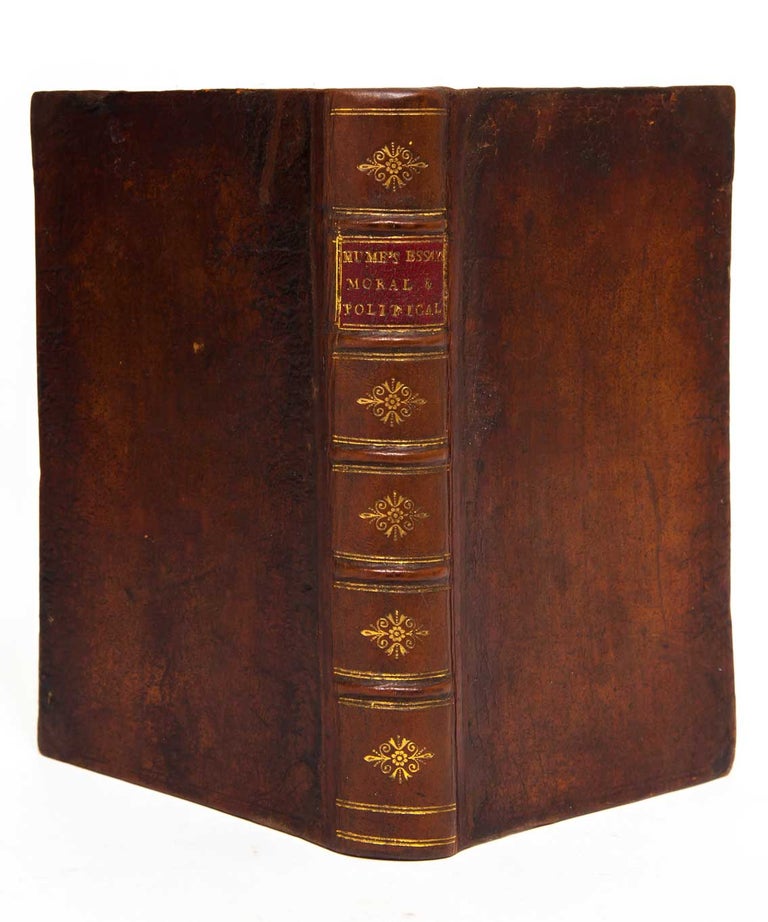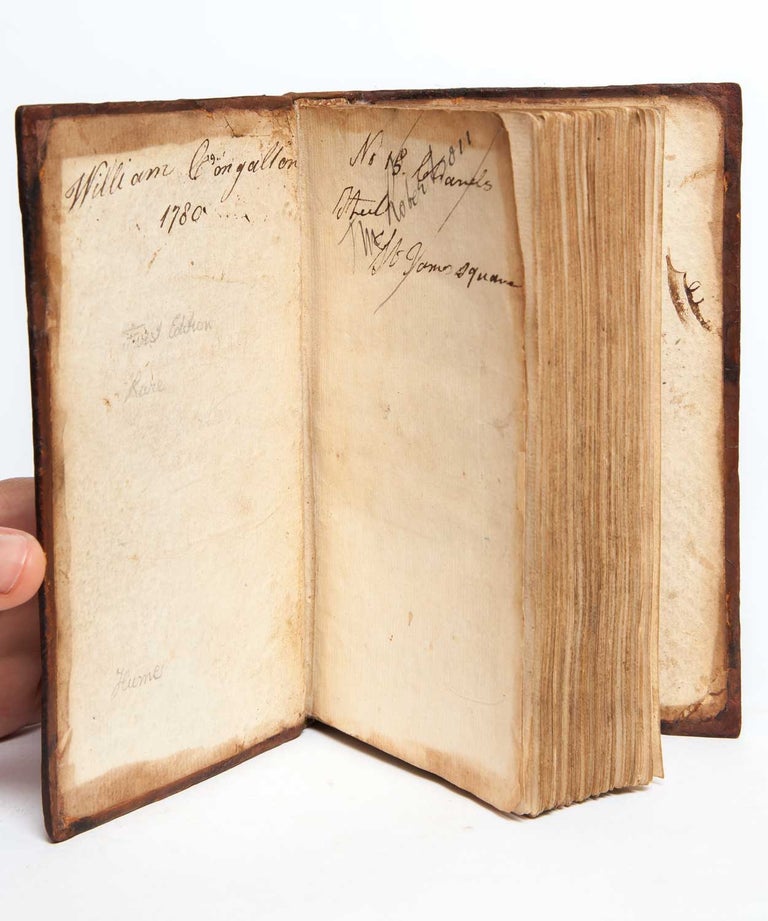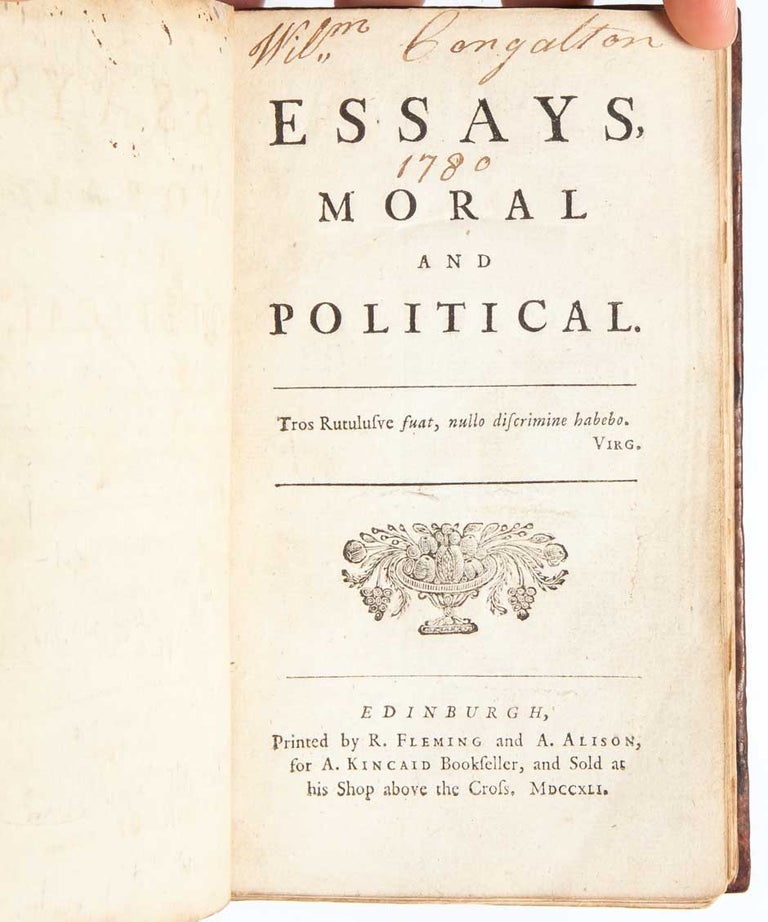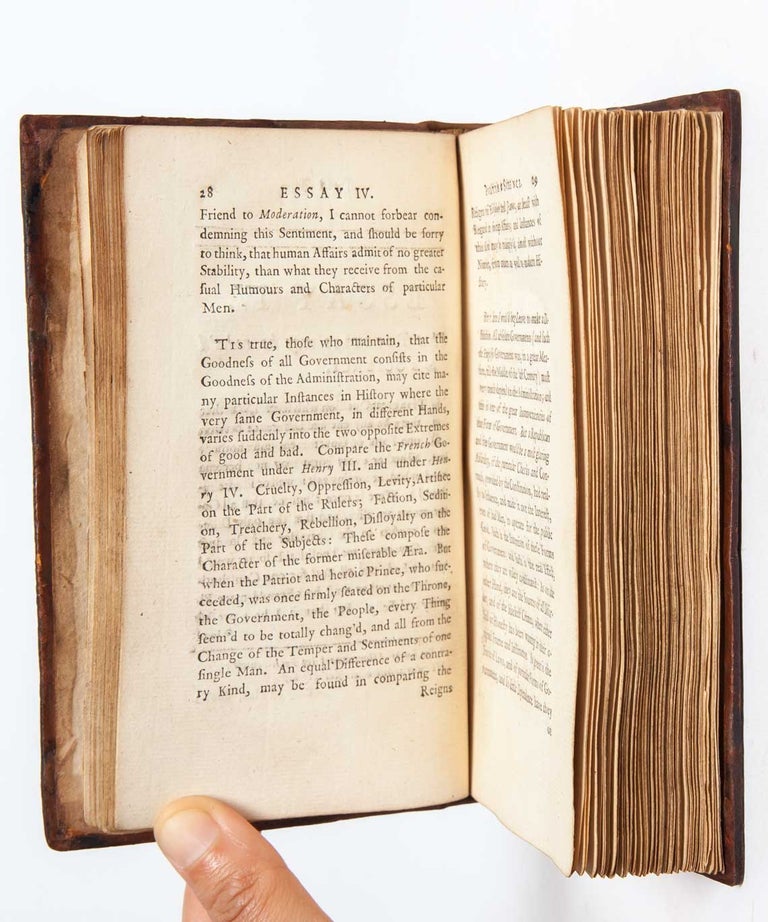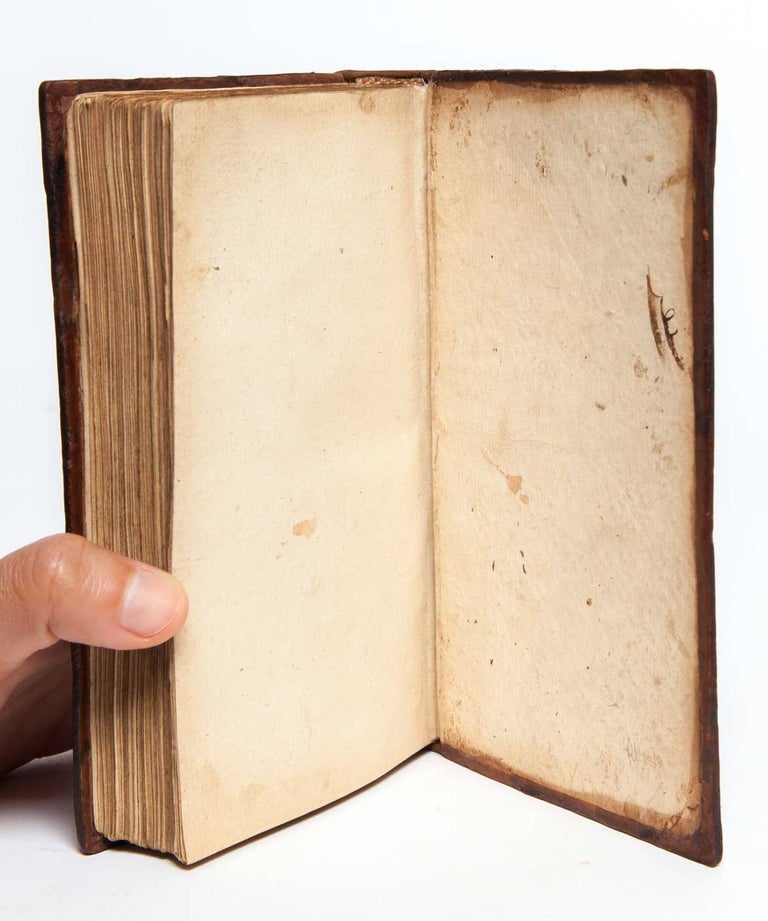Essays, Moral and Political.
Edinburgh: Printed by R. Fleming and A. Alison, for A. Kincaid Bookseller. 1741.
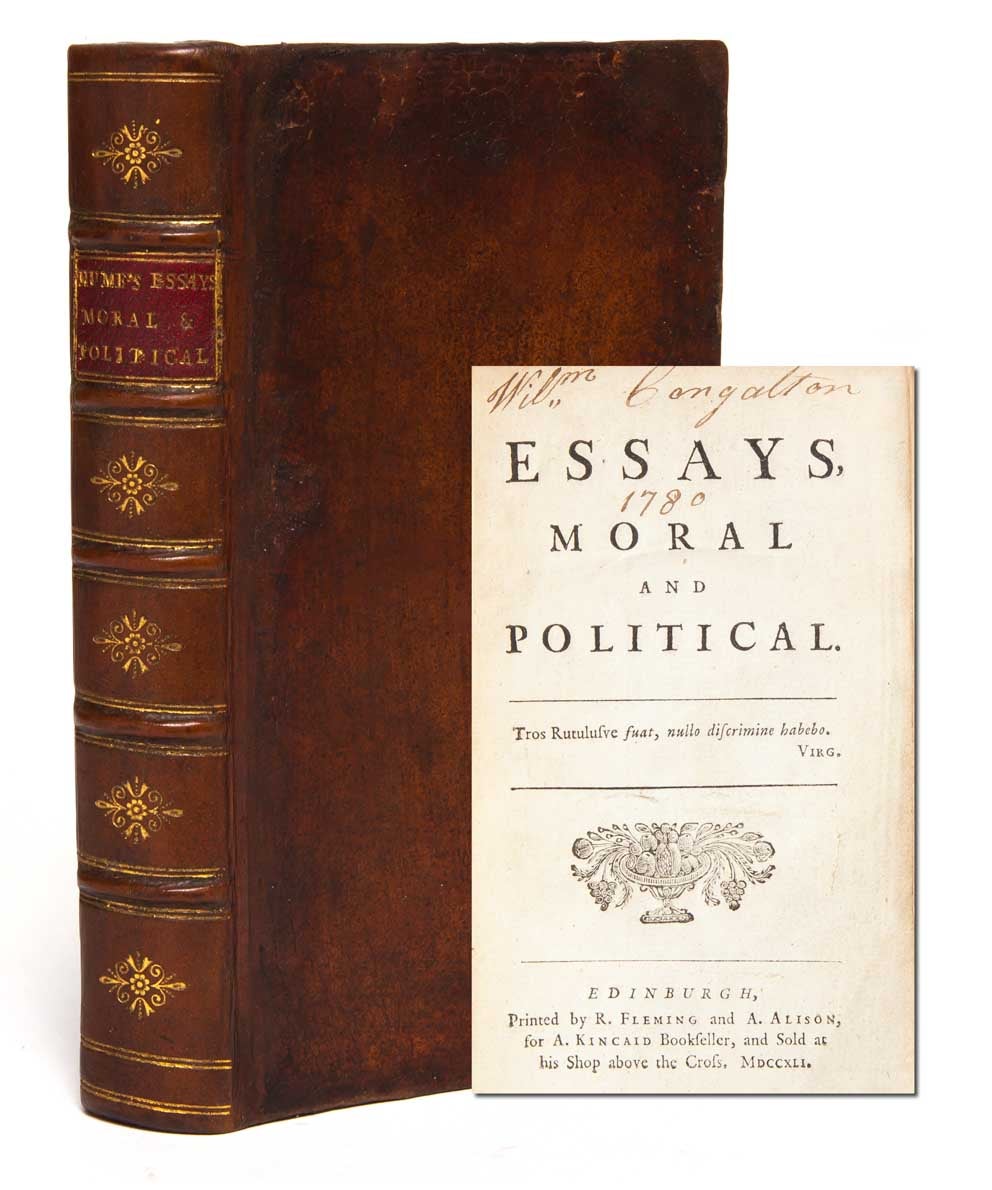

Essays, Moral and Political.
Edinburgh: Printed by R. Fleming and A. Alison, for A. Kincaid Bookseller. 1741. First Edition. Bound in full contemporary calf, rebacked to style, rear free endpaper replaced. Ownership signature of William Congalton 1780 on the front paste-down and title page. Octavo (pages 153 x 93 mm) collating: viii, 187; complete. A clean, attractive copy internally. Issued as a stand-alone work; however a second volume of essays was published the following year and is sometimes collected with this one. Scarce, with just five copies appearing at auction since the 1950s.
Hume’s empiricist philosophy changed the course of human thought across economics, ethics, and science; and his impact was felt by his contemporaries as well as the generations that followed. “Generally regarded as one of the most important philosophers to write in English…his influence is evident in the moral philosophy and economic writings of his close friend Adam Smith. Kant reported that Hume’s work woke him from his ‘dogmatic slumbers,’ and Jeremy Bentham remarked that reading Hume ‘caused the scales to fall’ from his eyes. Charles Darwin regarded his work as a central influence on the theory of evolution. The diverse directions in which these writers took what they gleaned from reading him reflect both the richness…and wide range of his empiricism” (Stanford).
Essays, Moral and Political was Hume's first great success. Published squarely between his first work A Treatise of Human Nature (1739-40) and his seminal work Philosophical Essays Concerning Human Understanding (1748), the book addressed what Hume viewed as shortcomings in his earlier publication and provided him with space to develop and complicate his ideas about the intersection of individual and social ethics. Advancing his theories of empiricism, Essays Moral and Political asserted a scientific approach to ethics and government. "Nothing appears more surprizing to those, who consider human affairs with a philosophical eye, than the easiness with which the many are governed by the few; and the implicit submission, with which men resign their own sentiments and passions to those of their rulers. When we enquire by what means this wonder is effected, we shall find, that, as Force is always on the side of the governed, the governors have nothing to support them but opinion....So great is the force of laws, and of particular forms of government, and so little dependence have they on the humours and tempers of men, that consequences almost as general and certain may sometimes be deduced from them, as any which the mathematical sciences afford us." For Hume, this approach to government can be applied on both the macro and micro levels; and thus in his consideration of marriage he admits that strife emerges in part through women’s drive for power but also because they are oppressed within traditional systems. “Tyrants, we know, produce rebels; and all history informs us, that rebels, when they prevail, are apt to become tyrants in their turn. For this reason, I could wish there were no pretensions to authority on either side; but that every thing was carried on with perfect equality, as between two equal members of the same body.” A cornerstone work of philosophy that continues to shape human thinking. (Item #2034)

